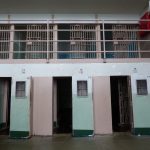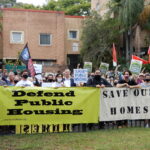City Pays People Not to Commit Crimes – And It’s Working!

What do you think about taxpayers paying repeat offenders not to commit crimes?
It may sound strange, but this is just what one US town has been doing.
The district of Richmond in San Francisco Bay has employed an unusual method of crime control – paying some of the worst troublemakers to behave themselves.
The program was the idea of DeVone Boggan, the Program Director of the Richmond Office of Neighbourhood Safety (ONS). He believes that, thanks to the initiative, they are well on the way to eliminating gun violence from the city entirely.
The ONS Peacemaker Fellowship program started five years ago, when Boggan realised that 70 per cent of murders and firearm offences in 2009 were linked to just 17 people.
Now, the district’s murder rate is lower than it’s been since the early 1970s. And at a cost of around $1.2 million per year (as well as private donations) the program has saved the taxpayer millions in the cost of prosecution and incarceration; not to mention avoided the harm that might have been caused to victims of crime and their families.
The annual murder rate in Richmond for 1990 was 62, which the highest on record; but it fell to 47 in 2009, which was the program’s first year. Since then, the rate has continued to drop; last year, the murder rate was just 11.
The program was not the only factor that came into play – changing demographics and lower unemployment levels may have also contributed, but this unconventional program certainly played an important part.
But the program does have its critics – with some arguing that taxpayers should be rewarding people for doing what they should in the first place; obeying the law. The program, they are argue, essentially rewards those for having committed crimes, which is an unacceptable situation.
How does it work?
The ONS Peacemaker Fellowship is not just about giving cash to criminals – those who are involved are also required to undertake training and rehabilitation. Importantly, participants are provided with help to find housing and employment, and to address health issues.
Each participant is allocated to a mentor to help them identify and achieve their goals – which may relate to housing, finance, anger management, drug rehabilitation, relationships, parenting and so on.
At the end of 18-months, they are eligible for $1000 cash per month if they demonstrate improvements in behaviour and positive social advancement.
The funds are cut off if they start going backwards, and the amount can fluctuate depending on progress.
Boggan is proud that several participants have gone on to complete college degrees, and that out of the 68 that started the program, 64 are still alive.
At first, the ONS found it hard to win over recruits, but interest grew over time. One young man, D’Vondre Woodards, has gone from prison, drug dealing, hustling and carrying guns to finishing his high school education and making it into college.
He accomplished every goal that was set out achieve – a remarkable transformation.
Woodard’s son was born just three weeks before he entered the program. The young dad knew he wanted to turn his life around for the sake of his child, so that he could be a positive role model and give his son a good upbringing.
Lesson learnt
The central tenet of Boggan’s plan wasn’t simply shelling out cash; and it would be a mistake to think that his solution equates to just throwing money at a problem. His initiative involves directly engaging with the community and incorporates an incentive for people to better themselves
So perhaps the lesson to learn is not that we need to start paying people not to commit crimes, but to develop specialised programs that are based directly on the needs of individuals, and provide the motivation and support that they need, instead of just throwing money at police forces and increasing penalties.






